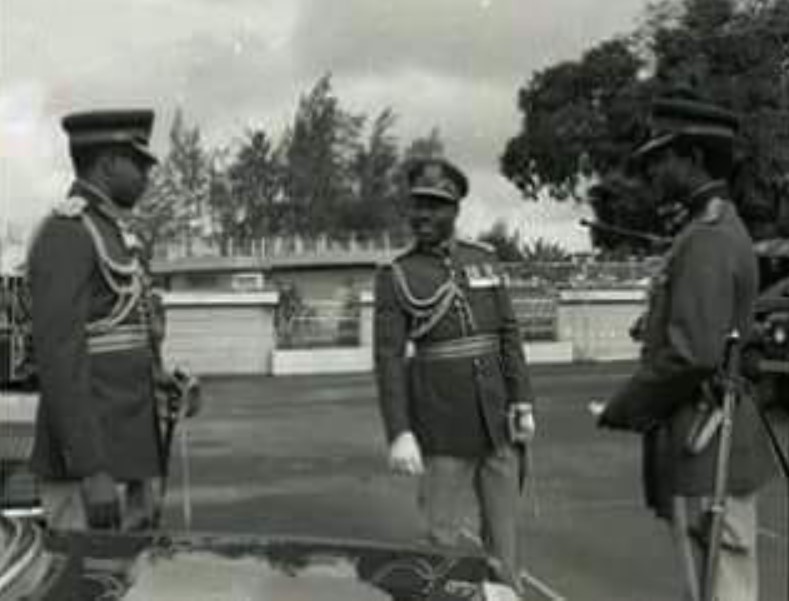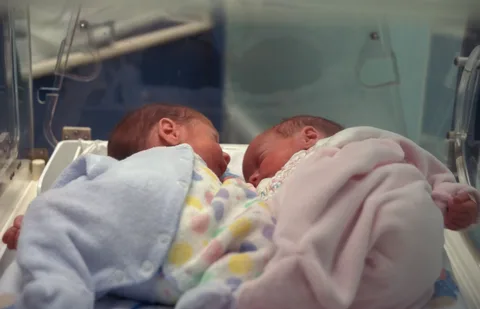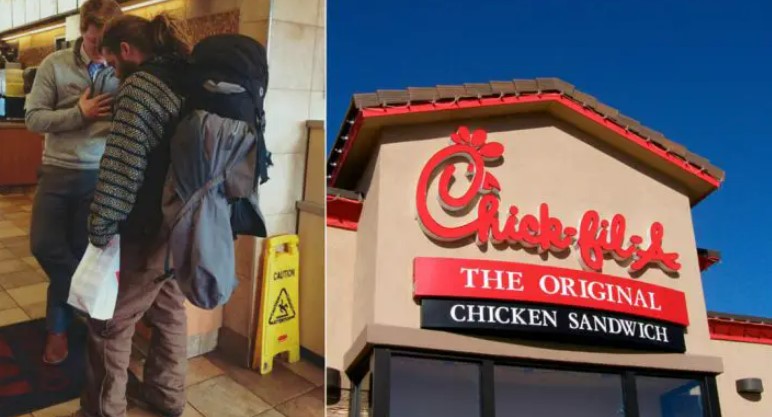(you will be surprised at Obasanjo, Buhari’s mention in this account by Gen. TY Danjuma)
“Murtala was killed. I think it is public knowledge that Obasanjo fled on the day Murtala Muhammed was killed. He remained in hiding until the coup was aborted and he reached out, first, to M.D Yusuf (Inspector-General of Police), who then called him and he came out of hiding, and joined us in Dodan Barracks. We discussed the funeral of Muhammed and made arrangement as to who would accompany his remains to Kano, so on and so forth…Click Here To Continue Reading>> …Click Here To Continue Reading>>
At the end of the meeting, Obasanjo asked M.D Yusuf and I to stay with him in the chambers (Dodan Barracks). After everybody had left, Obasanjo told M.D Yusuf and I that what had happened had destroyed his faith in the loyalty of the Nigerian Army. That he had decided that after the funeral, he would retire, leave the Army and go home. But before that he would name me as the successor to Murtala. I told him that, that amounted to desertion and that he could not run away. He was number 2, number 1 had been killed in battle; he as number 2 would take over.
He said no, no, no; that he didn’t think he should stay; that he wanted to go. We argued that. In the end, Yusuf said, “look, let’s all sleep over this matter; tomorrow we will decide.” I said, “look, there’s no question of sleeping over it; the point now is we should be looking for who is going to take Obasanjo’s seat as number 2 because there is no way we are going to allow him to chicken out and leave at this time; we must all stay and face the future together.” So, we left and I went home. By this time, we had called all the members of the Supreme Military Council to Lagos.
The following day, he (Obasanjo) started to talk in the same vein and I cut in. I said that Obasanjo could not leave; he had to stay and be the Head of State and we should be looking for the number 2 man. I had, over night, considered the consequences of what had happened and came to the conclusion that if we were not careful; we would end up with a religious conflict on our hands. Already, that evening – the evening that it became public knowledge that Murtala had been killed – Dimka had made a broadcast in which he said, “good tidings” among other things. He had imposed a curfew – from dawn to dusk (laugh) and said all sorts of things using the expression, “good tiding.”
Abubakar Gumi, in the North, said that the coup that killed Murtala was a Christian coup because of the utterances of the coup leader, who said, “good tidings” because it is an expression of Christians. Already, there was tension in the North. The governor of Kaduna State, an air force officer, Usman, had to contain him: that it had nothing to do with Christians, that it was a purely military affair.
I knew that if we were not careful, as time went on, we should be consumed by religious strife in the country. I decided that the new Chief of Staff must come from the North preferably, a Hausa/Fulani man. From my knowledge, I had two candidates – (Muhammadu) Buhari, who was really my number one candidate for that post and the late Shehu Yar’Adua. Shehu was not in the country; he was abroad as Minister of Transport. You would remember we had inherited a cement armada in the Lagos and Port Harcourt (ports) and his (Shehu’s) first assignment was to decongest the Lagos port and get rid of all the vessels that were clogging Nigerian waters, and attracting huge demurrages from our government. He (Shehu) was abroad attending to that problem when Dimka struck.
So, they were the two candidates. Buhari, at that time, and even today, is one of the most upright Army officers that the Nigerian Army has produced – very clean, a very strict officer. Unfortunately for him, he served under me for a short time in Port Harcourt and I observed that he was a very inflexible person. I reasoned that Buhari, any day, could be a first class Chief of Army Staff. Why waste him in a political post? Why shorten his career because if he became Chief of Staff, he would have to leave at the end of the tenure. Why waste him there?
Besides, I observed that he was too rigid; he was too inflexible to hold a political post. If you are in politics, you must be flexible; you must compromise from time to time. In politics, they call it pragmatism. But in the military, if you are pragmatic, it is regarded as a weakness. I said no, not Buhari. Shehu, I didn’t know him well except that I knew that, of all the officers of his rank, he was the most politicised. So, sending a politicised Army Officer to a political post, I thought, was a good thing. That was how I named Shehu the next Chief of Staff.
When we came to the Supreme Military Council and Obasanjo started singing the same tune that he had sung to me and M.D Yusuf the previous night, I said no, that was not the issue; he was the most senior person and he had to stay there. He had to stay in office. He made some feeble resistance but I think he had slept over our discussion and concluded that if we insisted, he would stay.
There were a few voices of dissent. The first came from the Chief of Air Staff, Isa Doko, who said that the problem we were facing was an Army problem and that the Army boys had confidence in me. That we had just crushed an attempted coup, and we should not put somebody there that the Army didn’t have confidence in. A few other officers supported him but I overruled them. And so, I imposed Obasanjo on my colleagues in the Supreme Military Council.”
_______________________________________
NIGERIA FEBRUARY 13TH 1976 COUP
When Lt. Col. Bukar Dimka of the Nigeria Army Physical Training Corps stepped out of his official residence on Macpherson Road, Ikoyi, in the early hours of February 13, 1976, he had one agenda in mind; the killing of the then Head of State, Gen. Murtala Muhammed.
He achieved that criminal act by gunning down the Kano-born head of state a few minutes after the latter left the Dodan Barracks, Obalende, the official seat of the Federal Military Government at the time.
Muhammed’s official black Mercedes Benz was riddled with bullets near a petrol station on Bank Road, (now Murtala Muhammed Drive) opposite the Federal Secretariat, Ikoyi. Killed along with him were, his ADC, Lt. Akintunde Akinsehinwa and driver.
After the assassination, Dimka had made a broadcast at the Nigerian Broadcasting Corporation (NBC) studio in the following words;
‘’Good morning fellow Nigerians, This is Lt. Col. B. Dimka of the Nigerian Army calling.
I bring you good tidings. Murtala Muhammed’s deficiency has been detected. His government is now overthrown by the young revolutionaries. Any attempt to foil these plans from any quarters will be met with death.
Everyone should be calm. Please stay by your radio for further announcements. All borders, air and sea ports are closed until further notice. Curfew is imposed from 6am to 6pm. Thank you. We are all together.”
Two days after Muhammed was assassinated, Dimka was declared wanted for treason and murder by military authorities. He was eventually caught at a checkpoint at Abakaliki on March 5, 1976 and brought to Lagos the following day.
On March 6, 1976, the Federal Government promptly issued a statement on his arrest as follows: ‘’His arrest followed a massive manhunt operation mounted by a combined team of the Army and Police in the area.
‘’The previous day, Lt. Col Dimka had checked in at a local hotel in Afikpo under the name of Mr. C. Godwin of the Federal Ministry of Agriculture, Enugu. Later, on his request, the hotel manager secured for him a girl, Miss. Beatrice Agboli, with whom to spend the night.
‘’A few hours later, the local Police security was alerted and they closed up on him. At about 10.30 pm, he bolted away through the window of the toilet of his hotel room into a nearby thick bush, abandoning his car with a dangling registration number ECC 6253.”
‘’The continuous joint manhunt operation by the Army and Police resulted in his subsequent arrest near Abakaliki.’’
Barely few hours after he was brought to Lagos, he was interrogated by the military Board of Inquiry led by Major Gen. E. O. Abisoye.
However while Dimka was being quizzed, 32 people including Major Gen. Illiya Bisalla, who had already been tried for their roles in the attempted coup were executed in Lagos on March 11, 1976.
The only civilian executed among them was Abdulkarim Zakari, a graduate of University of Ibadan, who was said to have led Dimka and others into the studios of the NBC on February 13, 1976. The broadcaster was also cited as the man who signed for martial music records from the NBC library the previous night.
Just as the first batch of coup plotters were executed, Dimka’s trial begun after he was presented to the press on March 11, 1976.
Handcuffed, Dimka who wore a katftan dress watched journalists listen to a tape recording of his appearance before the board of inquiry for about five minutes. He confirmed that the voice on the tape was his own and that it was a recording made at his interrogation. He emphasised that the statement was not made under duress.
According to a Daily Times publication, ‘’13 Years of Military Rule 1966-79’’ the highlights of Dimka’s confessional statements included, ‘’Frankly speaking, I should say the beginning of the coup idea was around January this year (1976).’’
He said he had discussions with some persons including former Head of State, Gen. Yakubu Gowon in London and when he returned to the country, he decided to assign responsibilities to members of the young revolutionaries conscripted into the plan.
But Gowon, who was in exile at the time denied any prior knowledge of the coup attempt.
Dimka also claimed the coup plot was hatched by young officers who resolved not to involve any Lieutenant Colonel and above except himself in a bid to effect a change of government.
In his confessional statement, he said, Gen. Bisalla had complained to him and expressed his frustration that despite being a member of the Supreme Military Council (SMC), each time there was a decision to be taken, he was either sent to one place or the other.
Dimka said ‘’ Bisalla told me that whatever will happen he want us to go ahead, and work out the details.’’
Explaining how responsibilities were distributed, the leader of the coup plot said ‘’ When I met Major Rabo, he said that he had finally distributed responsibilities. Major Rabo was for target one- Head of State, Lt. Dauda was for target two- Lt. Gen. Obasanjo, Lawrence Garba was for target three- Lt. Gen. Danjuma.
‘’Major Gagara was for Ilorin and Sokoto, Jos had nobody. The main centres of operations were Kaduna, Ibadan, Benin where there are Radio stations’’.
He also listed the targets of attack, that is, those to be eliminated as the Head of State, the four GOCs, Col. Babangida, Col. Bajowa, Col. Mohammed of Sokoto, Col. Ibrahim Taiwo of Kwara, Col. Abdullahi of Jos and Col. Jemibewon of Ibadan.’’
Dimka also confessed before the military board of inquiry how Zakari showed him the NBC broadcasting section on February 12, a day before the coup attempt.
On how the ex-Head of State was killed, he said ‘’ I stood at George Street with Major Rabo to wait until such a time when the Head of State’s car was coming out. There, one Capt. Malaki who was to give the warning order. Capt. Malaki was to be on the watch to signal Major Rabo and Lt. William Seri on the approach of the vehicle. So I came up and I was at the petrol station waiting.
‘’I was behind while we were talking when the Commander –in-Chief’s car passed. In fact, I did not even see it until when Malaki said the car has passed. So, we rushed in and then followed and the car was held somewhere just opposite the petrol station.
‘’Lt. Seri was approaching the car when we stopped and Major Rabo rushed to him, then the firing started. ‘’
Dimka confessed that after the Head of State was assassinated, he went to the NBC and made his broadcast that the young revolutionaries had taken over the government.
At the end of his trial, coup leader and a number of others were found guilty of treason and murder. Their death sentences were confirmed by the Supreme Military Council.
Dimka and seven others were eventually executed by firing squad at Kirikiri Prisons on May 15, 1976, for their part in the abortive coup. Also executed among the squad was the former Governor of the then Benue Plateau State, Joseph Gomwalk.
However, two NCOs, Sgt. Clement Yildar and Corporal Dauda Usman escaped and were never found. They were declared wanted by the authorities.
The situation led to the promulgation by Olusegun Obasanjo regime of certain retrospective decrees and new military laws justifying mass executions for coup participation. READ FULL STORY HERE>>>CLICK HERE TO CONTINUE READING>>>
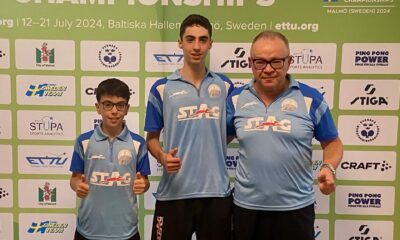
 SPORTS10 months ago
SPORTS10 months ago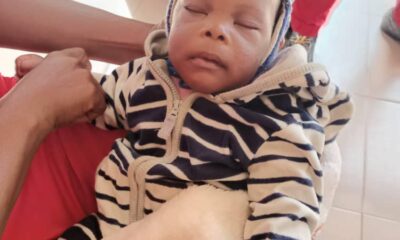
 IN-THE-NEWS11 months ago
IN-THE-NEWS11 months ago
 HEALTH & LIFESTYLE3 days ago
HEALTH & LIFESTYLE3 days ago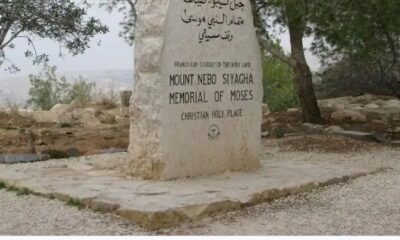
 IN-THE-NEWS11 months ago
IN-THE-NEWS11 months ago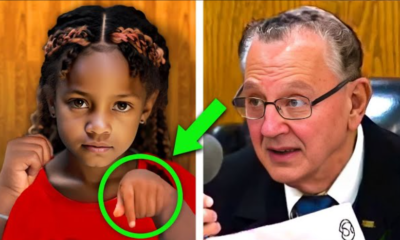
 METRO8 months ago
METRO8 months ago
 SPORTS10 months ago
SPORTS10 months ago
 SPORTS11 months ago
SPORTS11 months ago
 METRO1 day ago
METRO1 day ago
